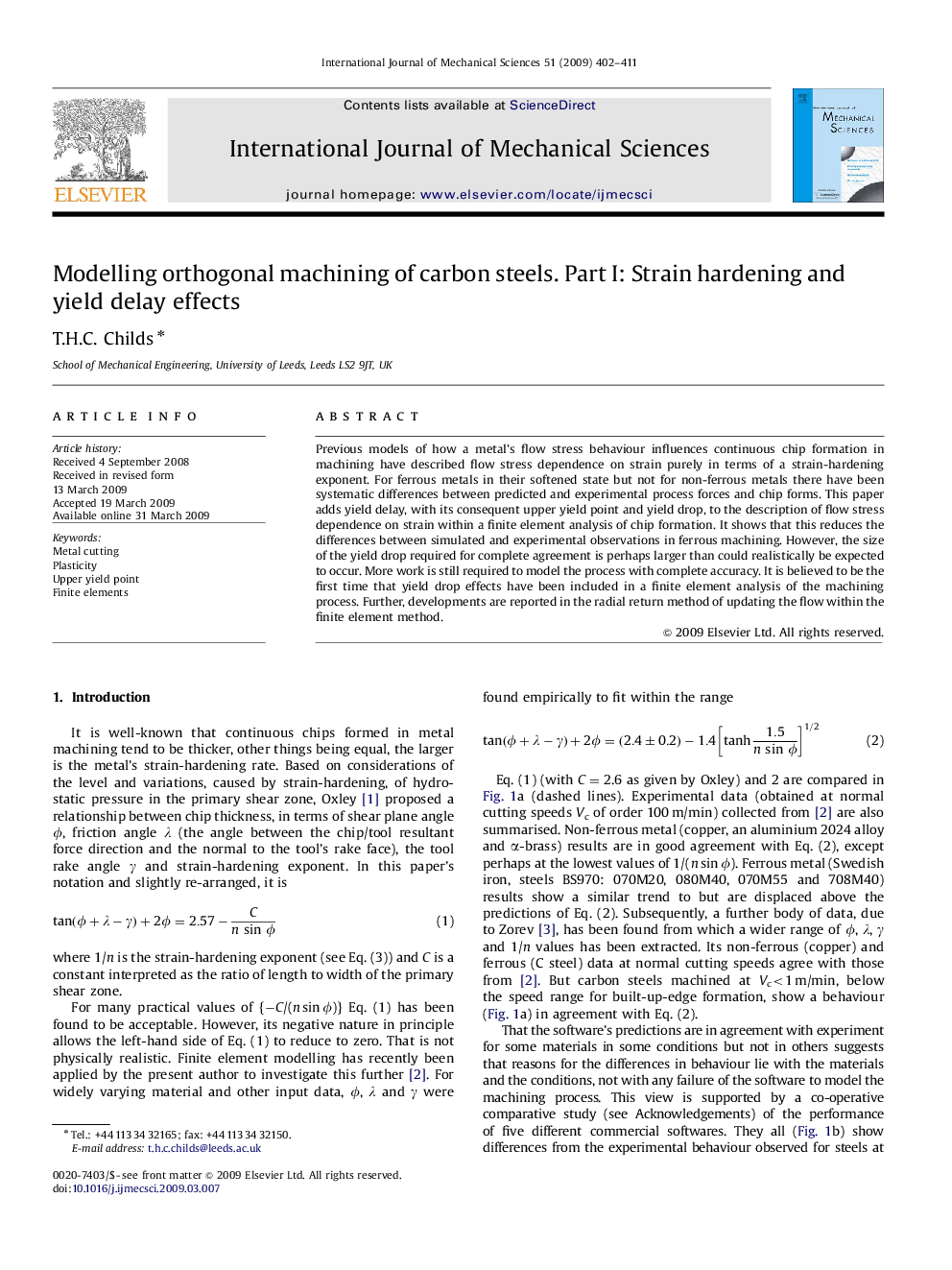| کد مقاله | کد نشریه | سال انتشار | مقاله انگلیسی | نسخه تمام متن |
|---|---|---|---|---|
| 786103 | 1465056 | 2009 | 10 صفحه PDF | دانلود رایگان |

Previous models of how a metal's flow stress behaviour influences continuous chip formation in machining have described flow stress dependence on strain purely in terms of a strain-hardening exponent. For ferrous metals in their softened state but not for non-ferrous metals there have been systematic differences between predicted and experimental process forces and chip forms. This paper adds yield delay, with its consequent upper yield point and yield drop, to the description of flow stress dependence on strain within a finite element analysis of chip formation. It shows that this reduces the differences between simulated and experimental observations in ferrous machining. However, the size of the yield drop required for complete agreement is perhaps larger than could realistically be expected to occur. More work is still required to model the process with complete accuracy. It is believed to be the first time that yield drop effects have been included in a finite element analysis of the machining process. Further, developments are reported in the radial return method of updating the flow within the finite element method.
Journal: International Journal of Mechanical Sciences - Volume 51, Issue 5, May 2009, Pages 402–411